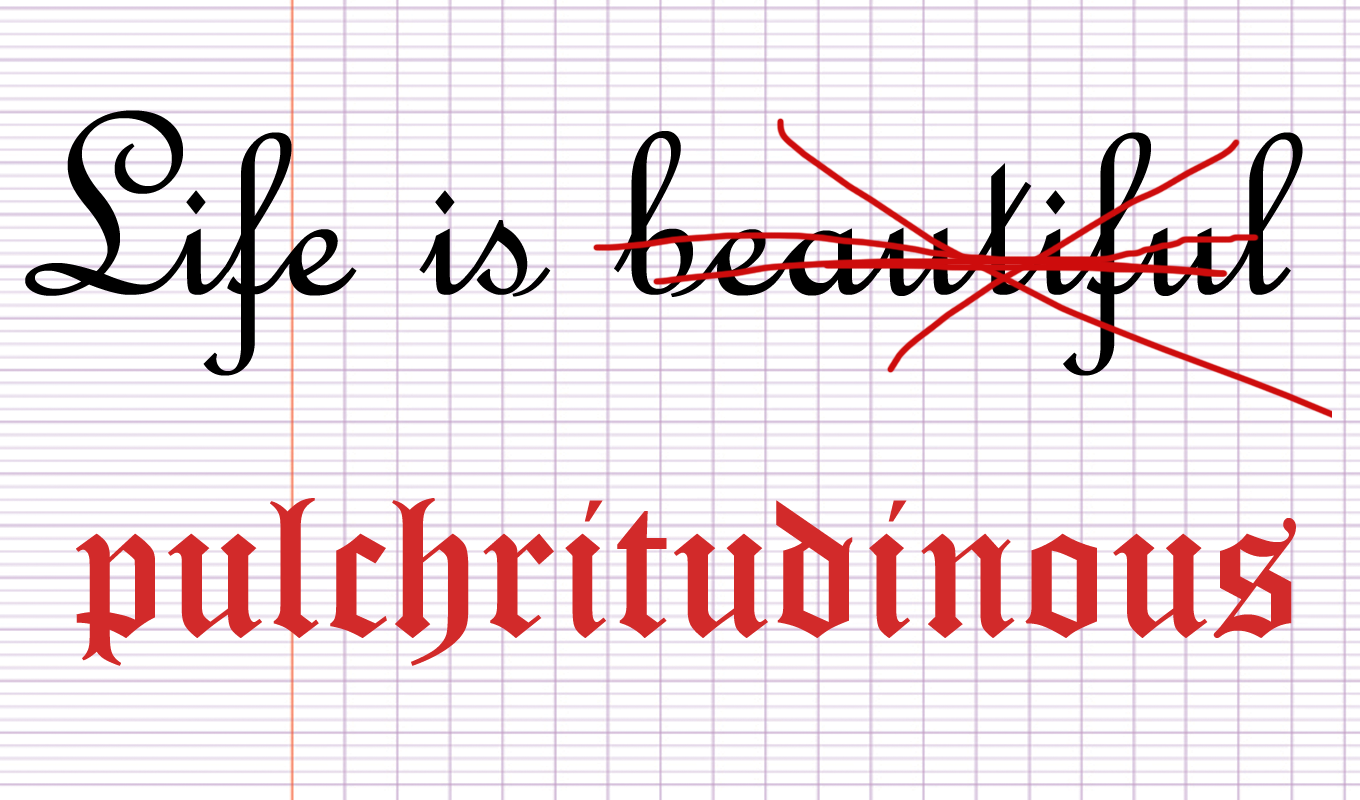Word of the Day #1 – Pulchritudinous
The previous blog posts often put the spotlight on brands, advertising or marketing but seldom focused on words. As Nomen is a naming company, and naming is mostly about juggling words and languages, it seemed important to take care of that oversight and dedicate a post to celebrating the beauty of words. Incidentally enough – or maybe not so much since I was the one deciding on this topic – the word of the day will be about beauty: pulchritudinous.

Admittedly no longer in use, this word first appeared in the English language in the 15th century and has been used by many writers ever since. Nowadays, it is deemed outdated and obsolete, but it would be a great loss to the English language should this word ever sink into oblivion, if only for its unique medieval charm.
The noun pulchritude, the adjective pulchritudinous and the adverb pulchritudinously all come from the Latin word “pulcher” which means beautiful, fair, or more figuratively noble, honourable, excellent. It is quite interesting to note that the Latin word referred to both inner and physical beauty while the English word only retained the former significance.
“Cathy, you are talking to an expert,” her husband pronounced. “I am the one person in this house who can give out a dispassionate appraisal of the pulchritude of any female human being, living or dead, and I say that you are beautiful. End of discussion. ” — (Tom Clancy, Patriot games, 1987.)
Indeed pulchritude refers to physical beauty and is synonyms to “comeliness”, however it has sometimes been used to describe landscapes, buildings or concepts. A pulchritudinous person is someone of great physical beauty; as a matter of fact in the 20s and 30s the ancestor of the Miss Universe Contest was called the International Pageant of Pulchritude.
So why not try saying “You are so pulchritudinous today”, it is so much more original than the usual “You are beautiful”, isn’t it?